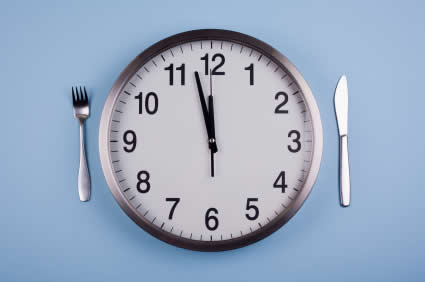Sales Secret: The Best Time to Close
 Want to close a sale? When choosing a time to meet with your customer, don’t just take the first appointment time offered to you. A recent study looked at decisions by judges, and revealed startling differences in outcomes at different times of day. Researchers at Columbia University and Ben Gurion University examined the decisions made by judges reviewing parole requests and plotted the rulings by time of day:
Want to close a sale? When choosing a time to meet with your customer, don’t just take the first appointment time offered to you. A recent study looked at decisions by judges, and revealed startling differences in outcomes at different times of day. Researchers at Columbia University and Ben Gurion University examined the decisions made by judges reviewing parole requests and plotted the rulings by time of day:
We record the judges’ two daily food breaks, which result in segmenting the deliberations of the day into three distinct “decision sessions.” We find that the percentage of favorable rulings drops gradually from ?65% to nearly zero within each decision session and returns abruptly to ?65% after a break. Our findings suggest that judicial rulings can be swayed by extraneous variables that should have no bearing on legal decisions. [Emphasis added. From PNAS – Extraneous factors in judicial decisions.]
The researchers attribute the dramatic drop in favorable decisions to mental fatigue. It’s easier for a tired brain to deny parole than make the more difficult decision to release a convicted criminal into society.
The “Lunch Effect” on Sales
Criminals, obviously, need to be clock-watchers… But what does this have to do with closing a sale? Plenty. One of the researchers, Jonathan Levav of Columbia University, is quoted in Nature: “The work shows the consequences of mental fatigue on really important decisions even among excellent decision-makers… [This could] happen anywhere where there is sequential decision-making and some kind of status quo or default that allows people to simplify those decisions.” Levav’s point is that any decision-making process can be affected in the same way, even by people who are serious, experienced, and focused. If judges are swayed this easily, it’s not hard to imagine a similar, if not greater, impact on purchasing agents, managers, individual consumers, and others.
A Time to Close
When Your Product is the Status Quo. While your first reaction might be to avoid setting meetings right before lunch or at the end of the day, the findings suggest a more nuanced approach. If the customer is currently using your product and isn’t experiencing some kind of crisis, those “bad” times of day may actually be the best times to renew a contract or get a commitment for more product. Because your product is the status quo, it’s an easier decision to make. Changing to another vendor or product always entails some effort and risk, so the odds of a favorable decision actually increase at these times.
When You Are Pushing for Change. On the other hand, if your product represents a change for the customer, do your best to avoid those low-energy time slots. It will be too easy for the customer to say “no,” and that will indeed be the inclination. If you get booked just before lunch, try to extend the appointment to include taking the customer to lunch. Spend the time before lunch schmoozing (see It Really DOES Pay to Schmooze) and conveying simple information, but don’t attempt to close the sale or overwhelm the customer’s tired brain with complex details. After lunch, the customer’s energy will be restored and the probability of success will increase.
Offer a Treat? One thing the researchers couldn’t evaluate in the judicial setting was giving the judge some kind of quick energy boost, like a glass of juice or a candy bar. It would have been interesting to see if that offset the energy deficit. Most sales settings are much more relaxed, so if you are booked into to a time slot long after your customer’s last meal, consider bringing along a sweet treat. As I described in Sugar as Brain Food and What Your Dog Can Teach You About Customers, restoring blood glucose levels can quickly combat mental fatigue.
While the marketing insights from this research are significant, I admit I do find it scary that sober, rational judges exhibit such a dramatic change – from 65% favorable decisions to nearly zero – depending on time of day. If you are unlucky enough to be scheduled for a court hearing, keep the timing in mind!
